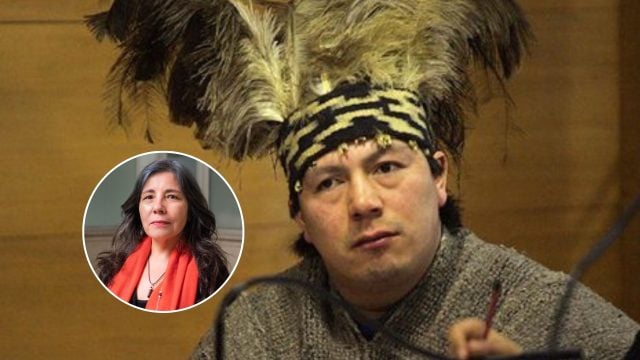Original article: Machi Celestino: Exigirle que reconozca el delito es asemejarlo a un criminal de lesa humanidad
Myrna Villegas, a criminal law professor at the University of Chile, criticized the majority vote of the Court, asserting that the requirement lacks legal foundation and contradicts its own appeal.
The lawyer, who holds a doctorate in law and teaches criminal law at the Faculty of Law at the University of Chile, voiced a legal critique against the decision made by the Parole Commission of the Appeals Court in Temuco. On October 10, the commission rejected Machi Celestino Córdova’s request by a majority vote. In an interview with El Ciudadano, she stated that Judge Gutiérrez Salazar’s position, which supported granting the benefit, is “legally correct,” since Chilean law does not mandate acknowledgment of the crime in cases involving common offenses.
Villegas emphasized that Machi is contesting the conviction before the Inter-American Commission on Human Rights, arguing that there are serious grounds for this, including the lack of identified perpetrators and the absence of gunpowder traces on his hands. In this context, she argued, “To obtain parole, asking him to acknowledge a crime for which he has filed a complaint is inappropriate,” she asserts.
The attorney elaborated on the requirements, highlighting that the conditions for parole focus on factors like serving half the sentence and a good conduct report. She believes that imposing the acknowledgment of the crime is an illegal requirement, especially considering that the reoffending prognosis for Machi, who has no prior charges, is low—almost nonexistent—and he meets all legal conditions for release.
A core aspect of her criticism centers on the confusion that the Appeals Court Commission appears to be making between what is mandated by the Gendarmería and what is legally obligatory. The legal requirement from Gendarmería is for the individual to understand the seriousness of the crime and explicitly reject it; however, this “does not mean he must admit his involvement,” which is what is being demanded of the convicted individual.
The specialist did not hesitate to point out that the majority decision is applying an inappropriate standard: “My impression is that the majority vote is treating Machi Celestino Córdova as if he were a criminal against humanity, and that is not the case,” she states. This requirement, which includes confessing participation or assisting in clarifying the crime—Article 3 bis of Law 18.216—applies strictly to such crimes, which do not pertain to Machi’s case.
Finally, Professor Villegas introduced a cultural and rights perspective, reminding us that “Machi need to be alongside their Rewes.” She questioned whether the Appeals Court would have ruled in the same way if a Catholic priest were in a similar situation, with reports of low recidivism: “Would it have issued the same ruling demanding something that, moreover, the law does not require?” she concludes.

